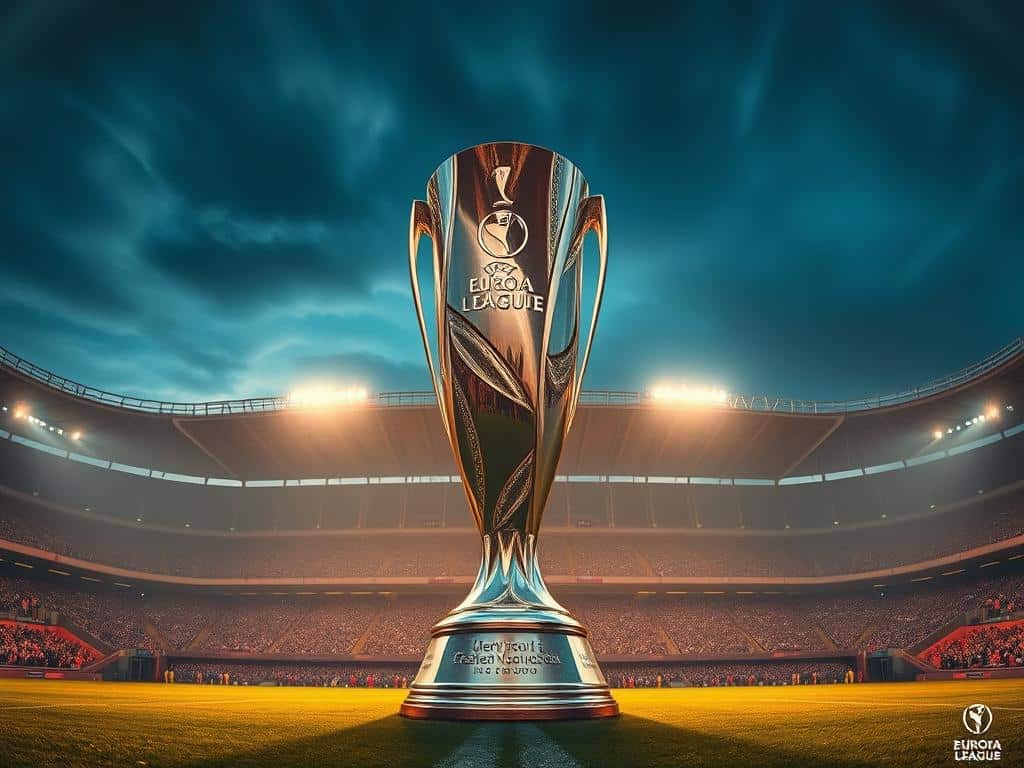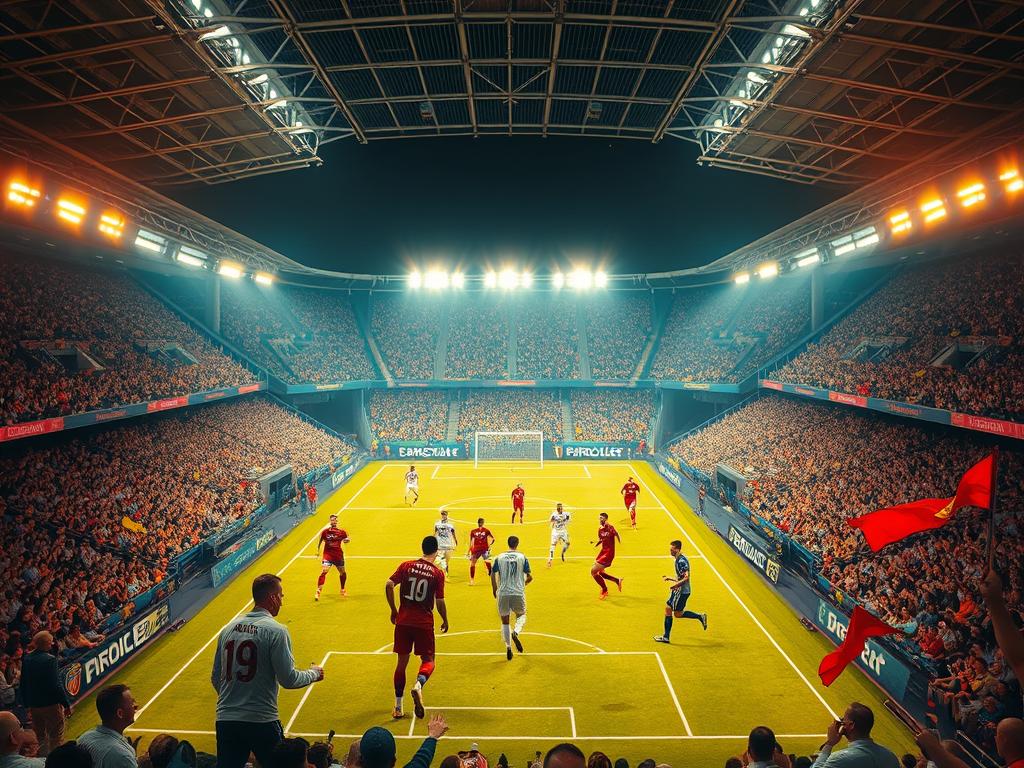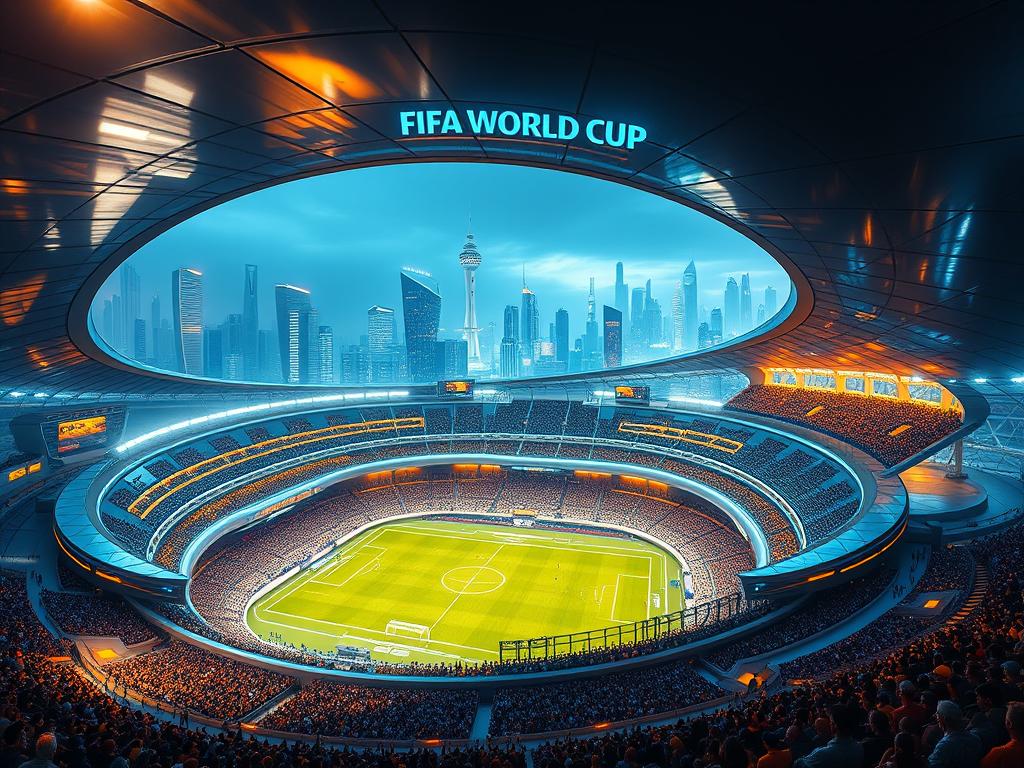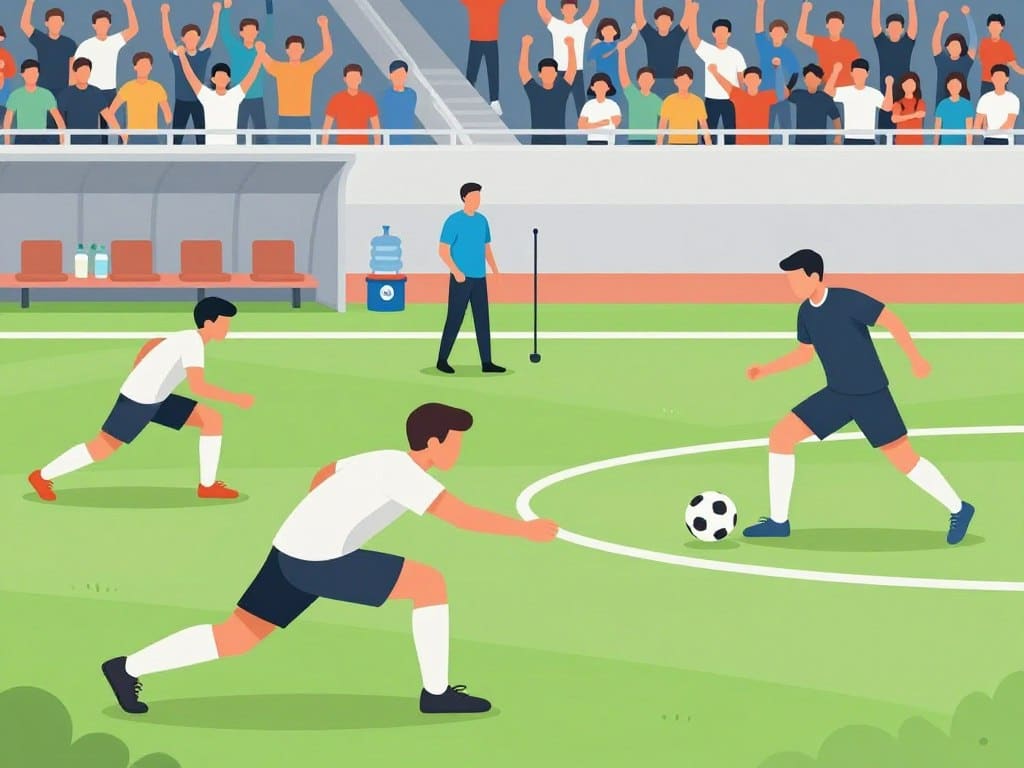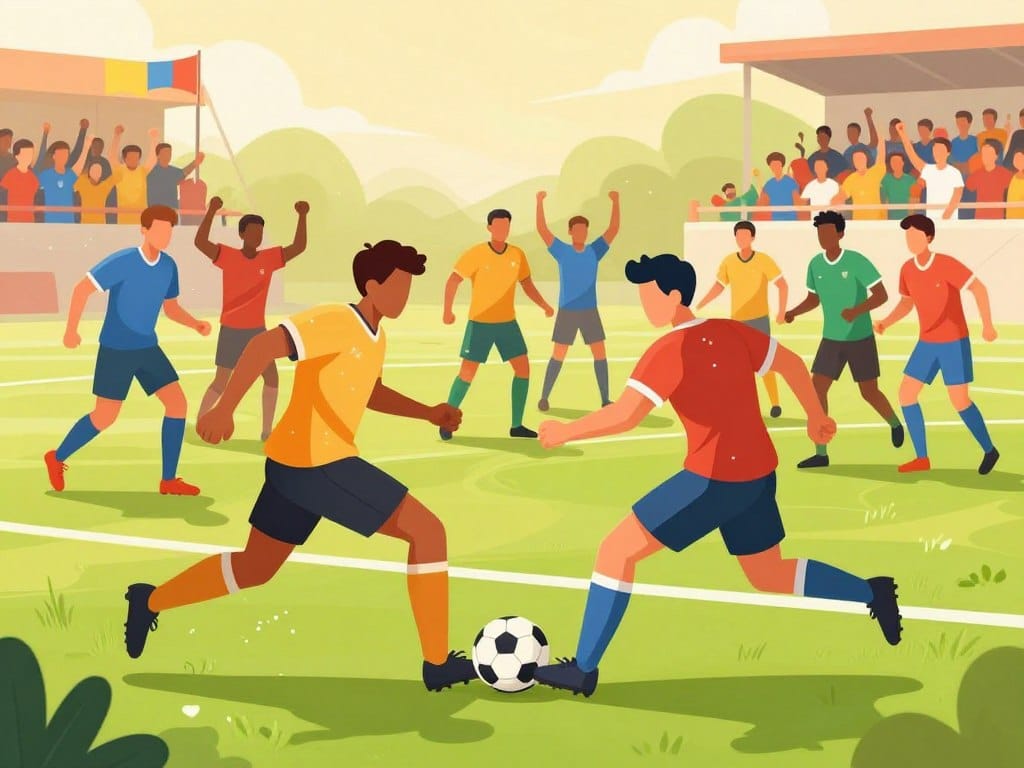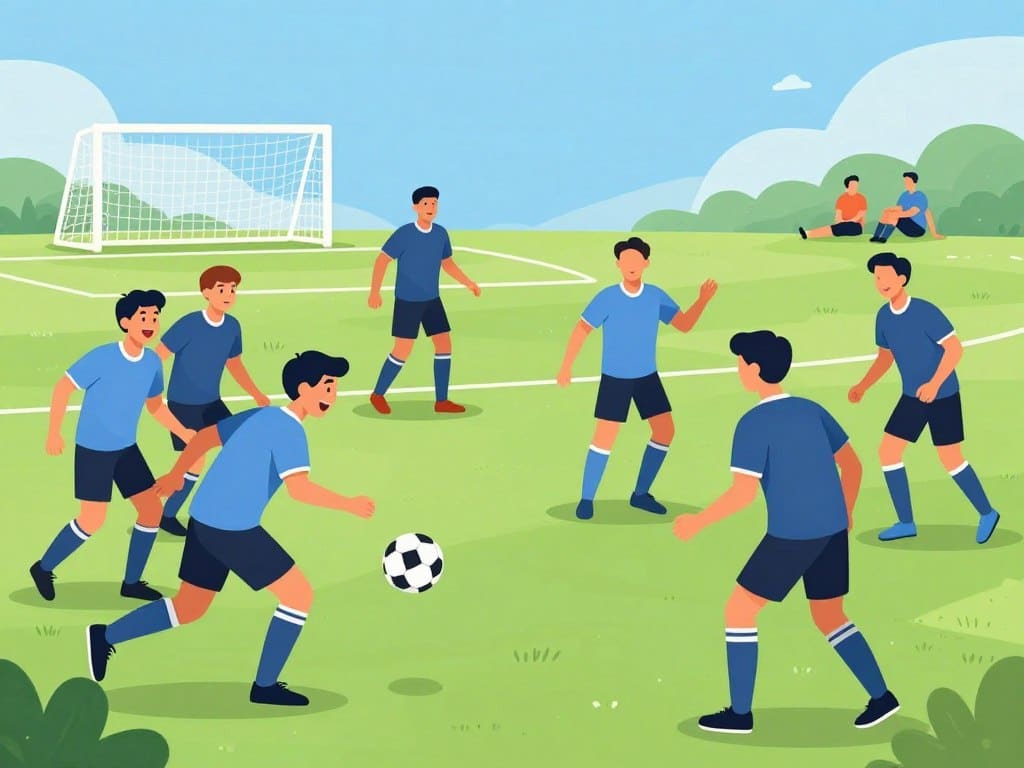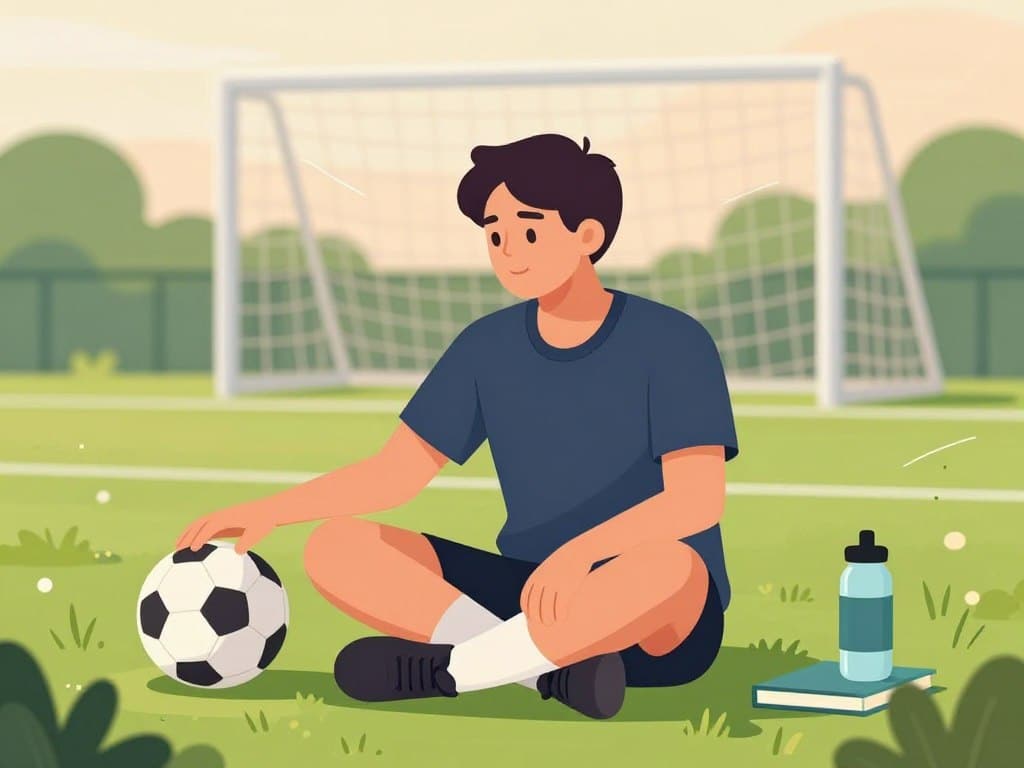The Europa League final has given soccer fans some of the most dramatic moments in the sport’s history. From underdog triumphs to tactical battles, these matches deliver unforgettable excitement.
Since 1971, this competition has evolved into a stage for heroes. Whether it’s last-minute goals or penalty shootouts, every final tells a unique story. You’ll find passion, skill, and surprises in every match.
Let’s relive the best moments from over 50 years of action. Get ready for thrilling comebacks, masterful tactics, and legendary performances that define this tournament.
Introduction to the Europa League’s Greatest Moments
From two-leg battles to single-night showdowns, this competition’s format changes revolutionized drama. The shift from the UEFA Cup to today’s structure created a pressure-cooker environment where every pass counts.
What makes these finals stand out?
Imagine 90 minutes deciding years of hard work. Single-match finals replaced the old two-leg system, amplifying tension. The 2001 Liverpool-Alavés clash, with nine goals, proved why this format delivers unforgettable action.
Fans love the accessibility too. Unlike the Champions League, smaller clubs can dream big here. Sevilla’s seven trophy wins show how underdogs thrive.
How the tournament evolved
The 1998 rebrand turned the UEFA Cup into a global spectacle. Record crowds followed—like 80,000 Celtic supporters in 2003. This club’s journey symbolizes the tournament’s emotional pull.
Today’s finals blend history with modern flair. Whether it’s tactical masterclasses or last-minute heroics, the stage is set for legends.
The 2001 Thriller: Liverpool vs. Alavés (5-4 AET)
Nine goals, two red cards, and one unforgettable night—Liverpool vs. Alavés had it all. This final wasn’t just a game; it was a rollercoaster of emotions, ending with a cruel twist in extra time.
The golden goal that decided a nine-goal spectacle
With 116 minutes played, Delfí Geli’s own goal sealed Liverpool’s win. It was the only major European trophy decided by the golden goal rule—a dramatic end to a match that had everything.
Alavés fought back from 3-1 down, scoring three times in four minutes. Jordi Cruyff’s 89th-minute equalizer forced extra time, setting the stage for Geli’s heartbreaking header.
Key players: Gerrard, Fowler, and the unfortunate own goal
Steven Gerrard, just 20, scored his first European goal. Robbie Fowler’s brace showcased his clinical finishing. But Gary McAllister stole the show—his free kicks and leadership fueled Liverpool’s treble-winning season.
For Alavés, the comeback was heroic. Iván Alonso’s two goals nearly won it, but Geli’s mishap ended their dream. Two red cards added to the chaos, making this the wildest final in history.
2019’s London Derby: Chelsea vs. Arsenal (4-1)
London’s biggest clubs clashed in Baku for a historic showdown. The 2019 final was a Premier League rivalry played 2,500 miles from home, with Chelsea dominating Arsenal in a 4-1 victory.
Hazard’s farewell masterpiece
Eden Hazard delivered a 65-minute masterclass—two goals, one assist—before his Real Madrid transfer. His backheel flick for Pedro’s goal summed up his brilliance. Chelsea fans savored every touch, knowing it was his last dance in blue.
Petr Čech’s emotional retirement contrasted with Kepa Arrizabalaga’s rise. The young keeper’s saves kept Arsenal at bay, proving Chelsea’s seamless transition between eras.
Arsenal’s struggles in the post-Wenger era
The 4-1 loss exposed Arsenal’s flaws. Defensive errors and a lack of urgency haunted them. This final accelerated their rebuild, pushing them to sign key players like Nicolas Pépé that summer.
Chelsea made history too. They became the first team to win the trophy unbeaten, a testament to Maurizio Sarri’s tactics. The odd setting—Baku’s half-empty stadium due to travel challenges—added geopolitical intrigue to this Premier League tale.
2007’s Penalty Drama: Sevilla vs. Espanyol (2-2, 3-1 pens)
Glasgow’s Hampden Park witnessed pure drama in 2007 as Sevilla and Espanyol clashed. This UEFA Cup final had everything—43 shots, extra time, and a penalty shootout that would define both clubs’ futures.
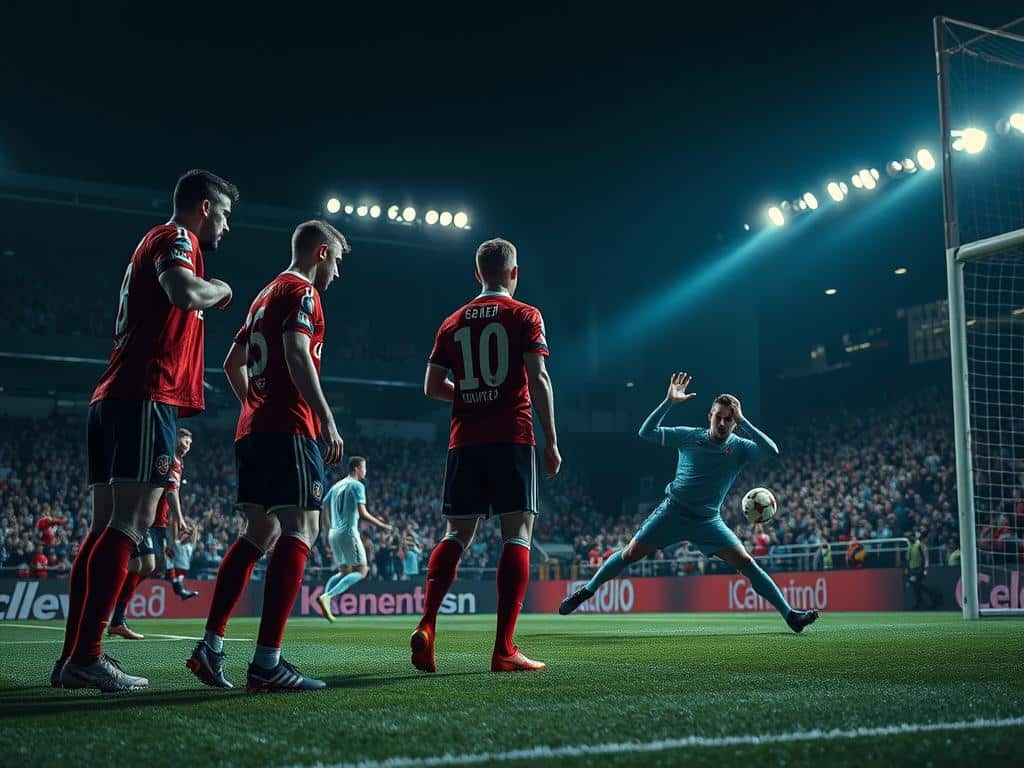
Sevilla’s dominance in the Europa League
Juande Ramos made tactical changes that changed the game. He shifted to a 4-2-3-1 in extra time, overloading Espanyol’s tired defense. This led to Frédéric Kanouté’s equalizer in the 105th minute.
Sevilla’s experience showed. They were defending champions, while Espanyol hadn’t reached a club final since 1988. Andrés Palop’s shootout saves cemented his place in history.
- 3 consecutive Espanyol misses (Luis García, Jonatas, Marc Torrejón)
- Sevilla scored all 3 spot kicks (Dani Alves, Frédéric Kanouté, Antonio Puerta)
- Began Sevilla’s record 3-peat (2006-2007-2014)
The heartbreak for Espanyol fans
You could feel the pressure during penalties. Espanyol’s players looked exhausted after 120 minutes. Their dreams crumbled as Sevilla lifted the trophy.
This loss haunted the side. They faced relegation battles in following seasons. Meanwhile, Sevilla became the first team to win back-to-back Europa League titles.
The match proved why penalty shootouts test mental strength. Sevilla stayed calm. Espanyol cracked. That’s the fine line between glory and heartbreak.
2003’s Special One Emerges: Porto vs. Celtic (3-2 AET)
Seville erupted in 2003 as Porto and Celtic delivered a UEFA Cup final for the ages. Over 80,000 Celtic fans turned the city green, but José Mourinho’s tactical genius stole the spotlight.
Mourinho’s first European triumph
This final birthed the “Special One” legend. Mourinho’s Porto, valued at €15M, outmaneuvered Celtic’s €6.5M squad. His defensive setup neutralized Henrik Larsson—until extra time.
Derlei became the hero with a 115th-minute winner after Bobo Baldé’s red card. Mourinho’s celebration sprint down the touchline foreshadowed his Champions League success with Porto the next year.
Henrik Larsson’s heroic brace
Larsson scored twice, bringing his Celtic goals tally to 242. His first was a header; the second, a clinical finish. For 90 minutes, he looked unstoppable.
But Porto’s team effort prevailed. This loss haunted Celtic for years, while Mourinho’s career skyrocketed. The match proved that even legends like Larsson could be outplanned.
2016’s Spanish Dominance: Sevilla vs. Liverpool (3-1)
Basel’s St. Jakob-Park hosted a masterclass in Spanish soccer dominance in 2016. Sevilla overcame Daniel Sturridge’s first-half stunner to claim their third straight Europa League finals trophy. The match showcased why experience often trumps raw energy.
Sevilla’s halftime adjustments
Sturridge’s curling strike in the 35th minute seemed decisive. But Sevilla’s team reacted instantly after the break. Kévin Gameiro leveled 17 seconds into the second half—a psychological blow that shifted momentum.
Coke’s brace sealed Liverpool’s fate, though his second goal sparked debate. Replays suggested a possible handball, but the referee’s call stood. You could see Klopp’s frustration as Sevilla’s precision overwhelmed his side.
Klopp’s growing pains
This final exposed Liverpool’s inexperience under Klopp. Their gegenpress faltered against Sevilla’s composed buildup. The Spanish team extended their unbeaten streak to 12 matches in the competition.
The loss fueled Liverpool’s growth. Two years later, they reached the Champions League final, applying lessons learned here. For Sevilla, this victory cemented their legacy as the tournament’s modern kings.
1988’s Epic Comeback: Bayer Leverkusen vs. Espanyol (3-3 agg.)
Down 3-0 after the first leg, Bayer Leverkusen defied the odds in 1988. This UEFA Cup final became the blueprint for comebacks, blending tactical genius with raw determination.
Leverkusen’s first European trophy
Erich Ribbeck’s gamble paid off. He switched to a 3-4-3 formation, overloading Espanyol’s defense. Tita’s 59th-minute header sparked hope—the first of three unanswered goals.
Leverkusen’s comeback wasn’t luck. They dominated possession, forcing Espanyol into errors. The Spanish club, unbeaten in the competition until then, cracked under pressure.
The penalty shootout that sealed history
No ABBA sequence—just pure nerve. In 1988, shootouts followed a straight order, intensifying the drama. Leverkusen’s goalkeeper Rüdiger Vollborn saved two, while Espanyol’s misses haunted them for years.
- Trophy glory: Leverkusen’s first major European title.
- Espanyol’s collapse led to a 19-year final drought.
- Connects to 2024: Leverkusen’s unbeaten season echoes 1988’s resilience.
This match proved why soccer thrives on unpredictability. One club celebrated; another wondered what might’ve been.
2021’s Marathon Shootout: Villarreal vs. Man Utd (1-1, 11-10 pens)
Gdańsk’s stadium erupted in tension as Villarreal and Manchester United battled through 22 penalties. This final wasn’t just about skill—it tested nerve, stamina, and the cruel beauty of spot kicks.
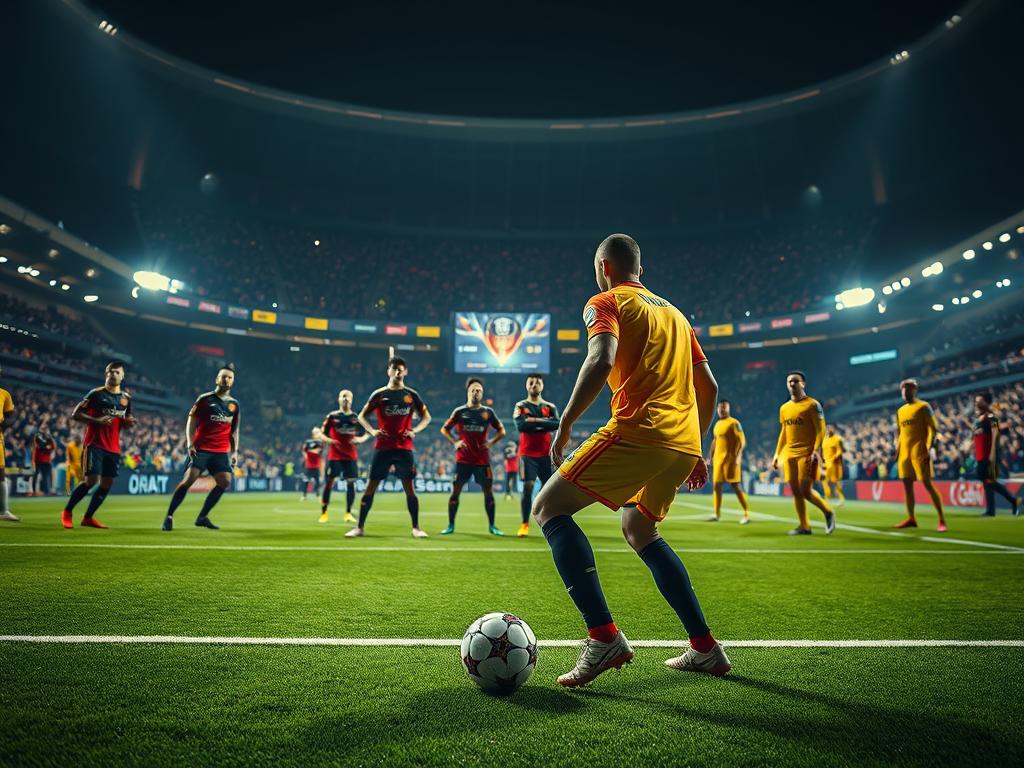
Emery’s tactical mastery
Unai Emery became the competition’s most successful coach with his fourth title. His Villarreal team executed a perfect game plan:
- Defensive discipline: Neutralized Bruno Fernandes and Paul Pogba for 120 minutes.
- Substitution timing: Fresh legs in extra time overwhelmed Man Utd’s exhausted defense.
- Penalty prep: All 11 Villarreal players scored—even goalkeeper Gerónimo Rulli.
De Gea’s heartbreaking moment
After 21 flawless penalties, David de Gea’s weak shot was saved. The goalkeeper, usually a hero, became the fall guy. Rulli’s save sealed Villarreal’s first major victory.
Solskjær’s decisions backfired. He subbed off penalty specialists like Marcus Rashford, leaving De Gea—who hadn’t saved a spot kick since 2016—to take one.
This shootout remains the longest in Europa League history. For Villarreal, it was glory. For Man Utd, another painful campaign ended in despair.
1998’s Italian Classic: Lazio vs. Inter Milan (0-3)
Paris’s Parc des Princes roared as Inter Milan dominated Lazio in 1998. This UEFA Cup final wasn’t just a win—it was a declaration of Inter’s return to Europe’s elite. A record 82,000 fans watched history unfold.
Ronaldo’s brilliance on the big stage
Ronaldo, nicknamed “O Fenômeno,” sealed the win with a 70th-minute solo goal. He dribbled past three defenders before a clinical finish. It was a moment that defined his legacy.
Luigi Simoni’s tactics maximized Ronaldo’s speed. Lazio’s defense, organized by Sven-Göran Eriksson, had no answer. Inter’s team play overpowered their rivals.
Zanetti’s unforgettable strike
Javier Zanetti’s 25-yard rocket in the 60th minute stunned fans. The strike curled perfectly into the top corner. Even today, it’s ranked among the best in UEFA Cup final history.
This victory sparked Inter’s dominance for years. They’d later win the Champions League final in 2010, but 1998 was the foundation.
- Key Tactics: Simoni’s 3-5-2 exploited Lazio’s weak flanks.
- Legacy: First of Inter’s 2000s European triumphs.
- Crowd: 82,000 set a then-record for the competition.
1972’s Inaugural Final: Tottenham vs. Wolves (3-2 agg.)
British clubs made history in 1972 with a fierce two-leg battle. The first UEFA Cup final pitted Tottenham against Wolves, setting standards for decades to come. This wasn’t just a match—it was the birth of a legendary competition.
The birth of the UEFA Cup
Bill Nicholson’s tactics revolutionized soccer. His Spurs club mastered the new away goals rule, scoring twice at Molineux. Wolves’ defense cracked under pressure, conceding an 87th-minute winner.
The prize? Just £23,000—a fraction of today’s €8.6M. But the stakes felt sky-high. This final proved smaller teams could shine on Europe’s stage.
Martin Chivers’ decisive contributions
Chivers delivered when it mattered most. His second-leg goals included a clinical header that silenced Wolves’ home crowd. The striker’s composure defined Tottenham’s historic win.
Wolves never recovered financially. Relegation followed within five years. Meanwhile, Spurs cemented their place in history as the first British UEFA Cup champions.
That 1972 clash remains a blueprint. It showed how tactics, grit, and one moment of brilliance could change soccer forever.
2012’s Falcao Show: Atletico Madrid vs. Athletic Club (3-0)
Bucharest’s National Arena witnessed pure Colombian magic in 2012. Atletico Madrid’s 3-0 final victory over Athletic Club wasn’t just a win—it was Radamel Falcao’s personal showcase on Europe’s stage.
Falcao’s masterclass in Bucharest
The striker’s 7th-minute curling goal set the tone. He added another before halftime, bringing his tournament tally to 12—a record that still stands. You could see Marcelo Bielsa’s frustration as his pressing system failed to contain Falcao’s movement.
Key flaws in Athletic Club’s approach:
- High defensive line vulnerable to through balls
- Midfield gaps exploited by Atleti’s quick transitions
- No plan B when trailing early
Atletico’s rising European pedigree
This title marked a turning point. The €40M financial boost from winning the europa league and Copa del Rey funded future success. Three months later, Diego Simeone took over—building this team into Champions League contenders.
Falcao’s performance foreshadowed Atleti’s 2014 run. His clinical strike rate mirrored Diego Costa’s impact when they reached the champions league final. The foundation was laid in Bucharest with that dominant display.
For Athletic Club, the loss stung. But Atletico’s blueprint proved how tactical discipline and one world-class finisher could conquer Europe.
2014’s All-Madrid Clash: Sevilla vs. Benfica (0-0, 4-2 pens)
Penalty drama defined the 2014 showdown between Sevilla and Benfica, two clubs with contrasting European fortunes. After 120 goalless minutes, the final hinged on nerve—and Sevilla’s goalkeeper Beto delivered.
Sevilla’s love affair with the competition
Unai Emery’s notes scandal revealed his meticulous prep. Beto studied Benfica’s penalty takers for weeks. His saves against Rodrigo and Cardozo weren’t luck—they were strategy.
The €15M prize fueled Ivan Rakitić’s transfer to Barcelona. But Sevilla’s real win? Cementing their identity as the tournament’s kings. This was their third UEFA Cup trophy in eight years.
Benfica’s curse strikes again
Jorge Jesus invoked the “Guttmann Curse” post-match. In 1962, coach Béla Guttmann vowed Benfica wouldn’t win in Europe for 100 years. After 2014, the side had lost eight straight finals.
Key moments that haunted them:
- Rodrigo’s weak penalty saved low by Beto.
- Cardozo’s strike denied—Beto’s dive to the left.
- 62 years and counting: Their last trophy remains the 1962 European Cup.
For Sevilla, glory. For Benfica, another chapter in a saga of near-misses.
The Unforgettable Legacy of Europa League Finals
Heroes rise, underdogs triumph—this competition delivers unforgettable stories. From last-minute goals to tactical genius, each final leaves its mark on soccer history.
Clubs like Sevilla and Porto transformed their futures with wins here. The 2024 final could follow suit, blending tradition with modern drama.
What’s next? VAR and expanded formats will shape new chapters. But the legacy remains—passion, surprises, and glory.
Ready to relive the magic? Pick your favorite champions league moment and hit replay!

